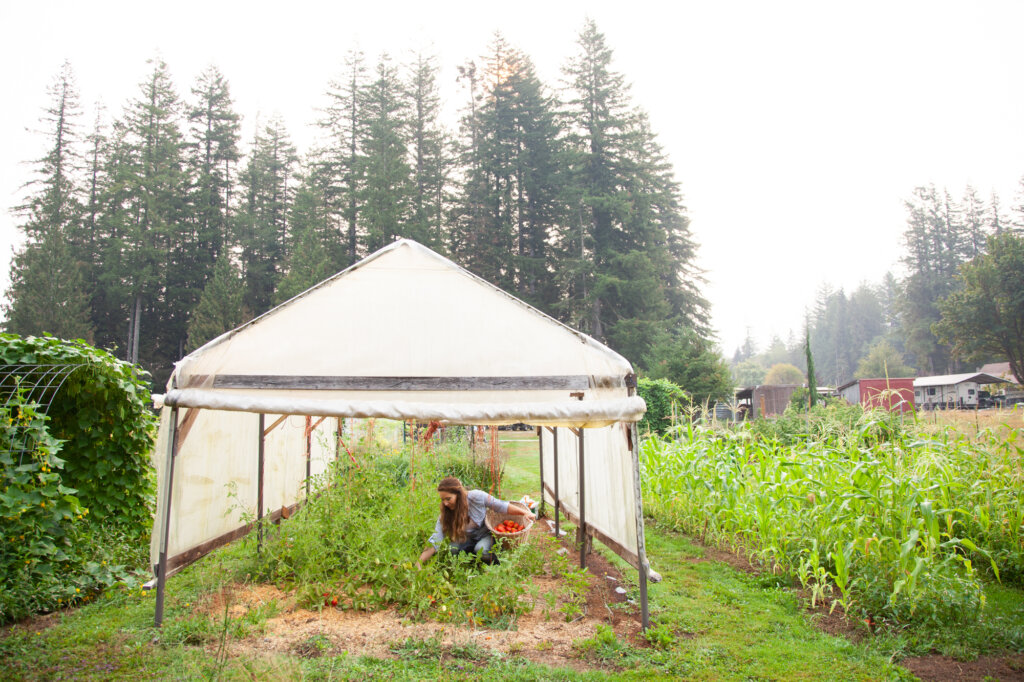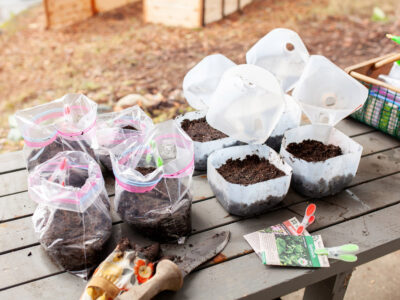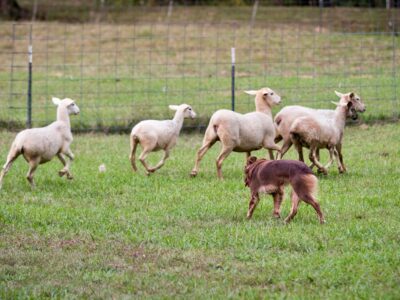Did you know that over 80% of homes in the United States have a garden or backyard space? If you are among this majority, you, my friend, should take advantage of it to grow your own food. Then, learn these methods for organic pest control to grow your best garden yet.
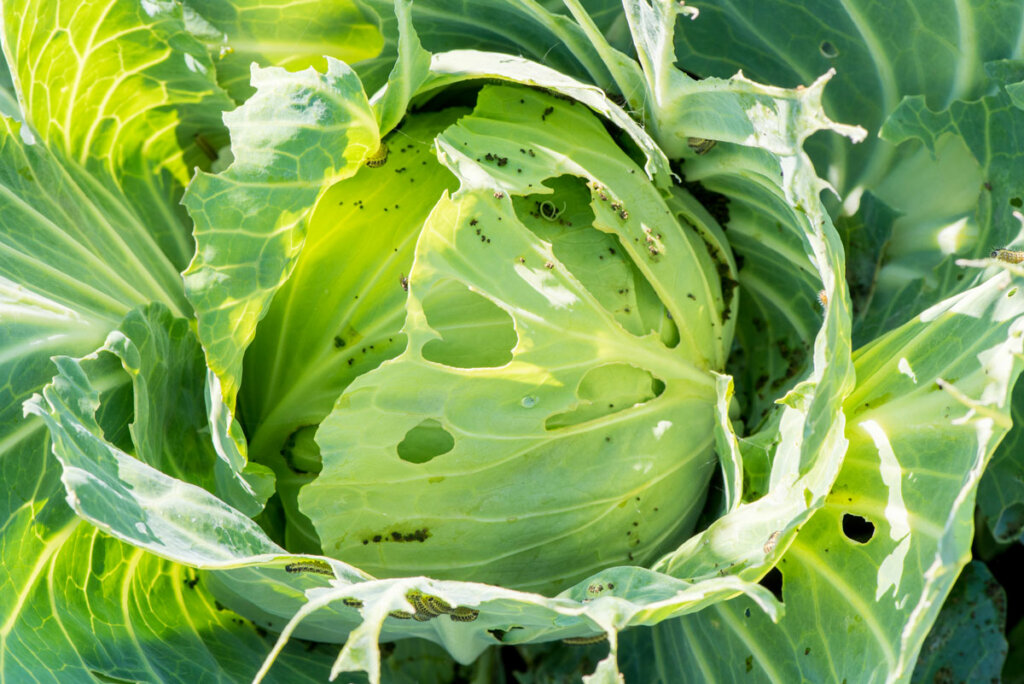
Using organic pest control, you can effectively protect your garden from pests without resorting to harmful chemicals. Use this guide for my proven methods of natural pest control that are safe for your plants, the environment, and your family.
🍞 Struggling With Sourdough?
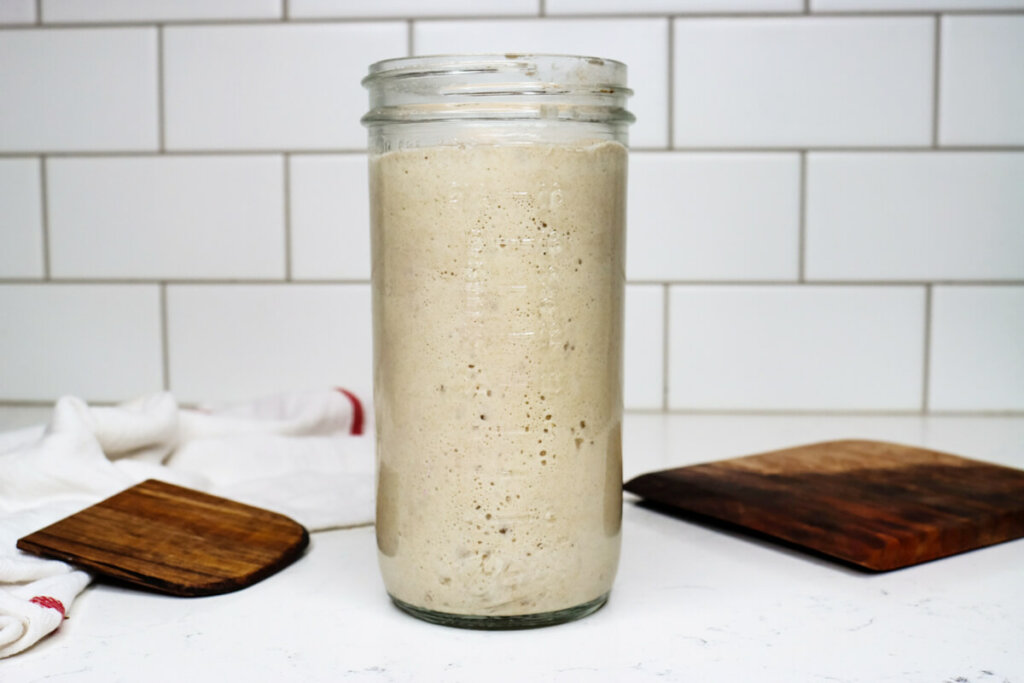
If your starter won’t take off, your loaves are dense and hard, or sourdough just flat-out overwhelms you…
👉 I’ll show you how to fix all of it.
Join my FREE workshop and learn how to make a bubbly, active starter—the right way, from Day One.
From preventing infestations to identifying and eradicating specific garden pests, you’ll discover practical and eco-friendly solutions for a thriving garden.
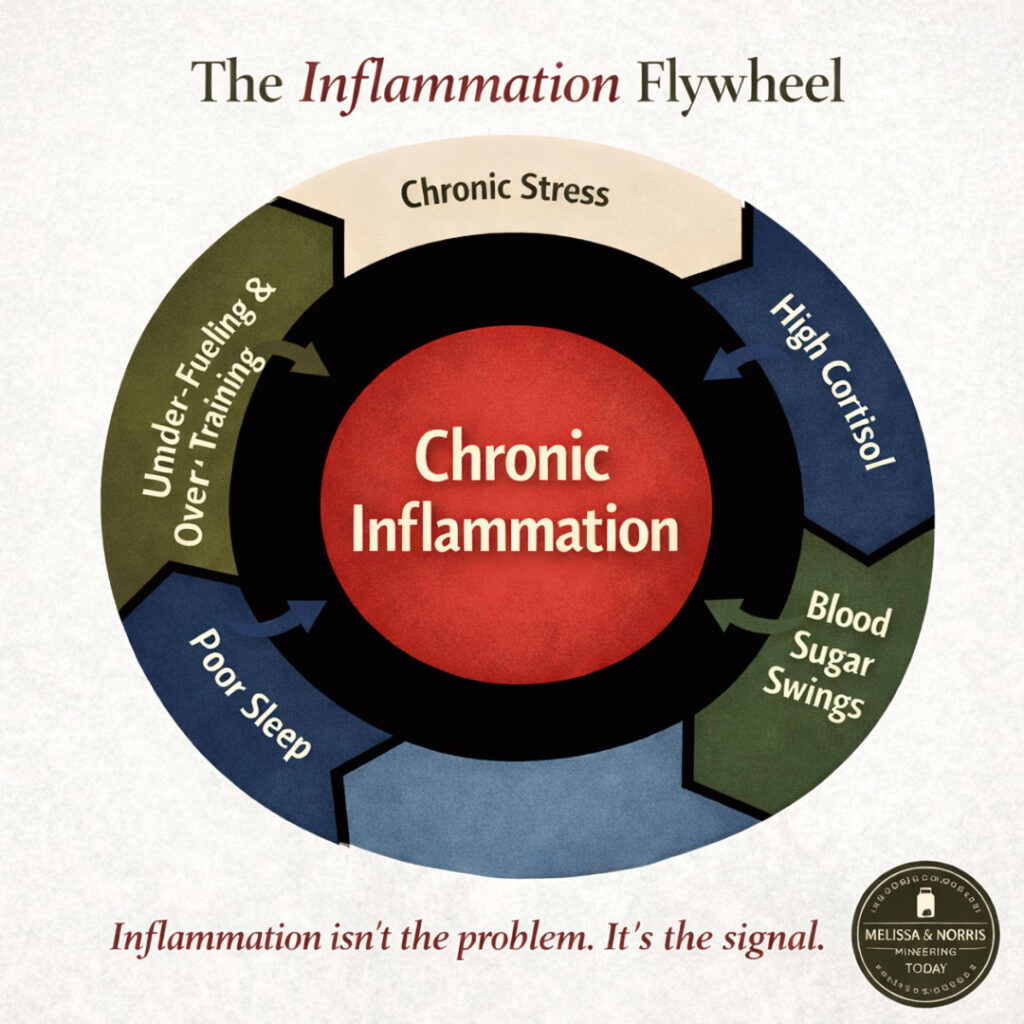
The Hidden Cycle Keeping You Inflamed
If you’ve been feeling puffy, tired, achy, or wired-but-tired, this two-page guide will help you understand what may be happening behind the scenes — even if you’re eating “healthy.”
Download the Inflammation Flywheel Guide and learn:
- Where to start so you don’t feel overwhelmed
- The 5 most common drivers that keep inflammation switched on
- Why blood sugar swings, stress, and poor sleep feed each other
This blog post was originally written in 2019, but I have found some great new methods for organic pest control that I had to share with you, so I have updated this post with both my podcasts and a video with my tips.
Listen to the full podcasts, Episode #266, How to Get Rid of Bugs on Plants Naturally Tips that Work and Episode #203 – 5 Tips for Organic Pest Control for Vegetable Gardens, of the Pioneering Today Podcast, where we don’t just inspire you, but give you the clear steps to create the homegrown garden, pantry, kitchen, and life you want for your family and homestead.
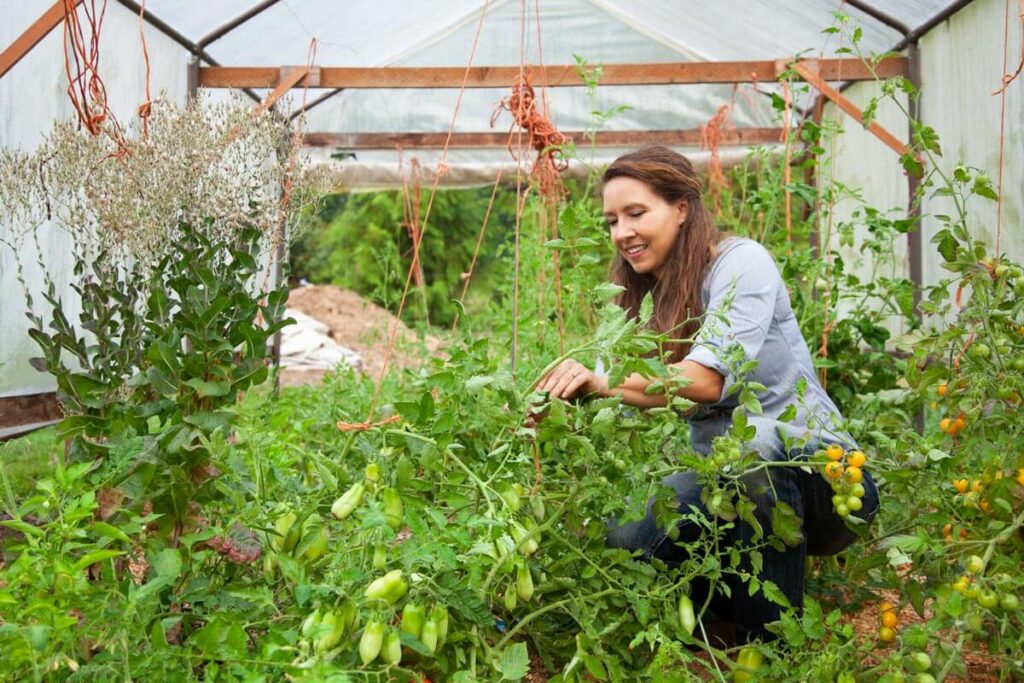
Table of Contents[Hide][Show]
- Why Organic Pest Control Is Important
- Tips for Prevention
- Proper Identification of Pests
- Two Ways to Treat Pests
- Organic Pest Control Options
- How to Repel Cabbage Moths Naturally
- How to Get Rid of Slugs Naturally
- How to Get Rid of Flea Beetles Naturally
- How to Get Rid of Aphids on Plants Naturally
- How to Kill Ants in Garden Naturally
- How to Get Rid of Squash Vine Borers Naturally
- How to Naturally Keep Birds Out of the Garden
- How to Naturally Keep Deer Out of the Garden
- Continued Application
- Other Posts You May Enjoy
Why Organic Pest Control Is Important
Whether you grow a large-scale survival garden or have just enough room to put in a container garden, there comes a time in every gardener’s life when you need to know how to get rid of bugs naturally. Unless, of course, you don’t mind putting in all the work just to feed the bug and slug population.
I am more selfish than that, however, and don’t want to share my homegrown veggies. There’s nothing worse than starting an organic garden only to find out that something is eating it.
Natural and organic pest control options aren’t as widely known among home gardeners, and sometimes, people get frustrated because they feel they don’t work as well. It can be tempting to reach for a conventional solution, but it’s important to remember that these quick fixes can have damaging effects on your soil fertility, harm beneficial pollinators, and pose risks to your health.
It’s also important to realize that no one method will work for everything, so having an arsenal of organic pest control options will be your best bet for combating whatever comes up in your garden.
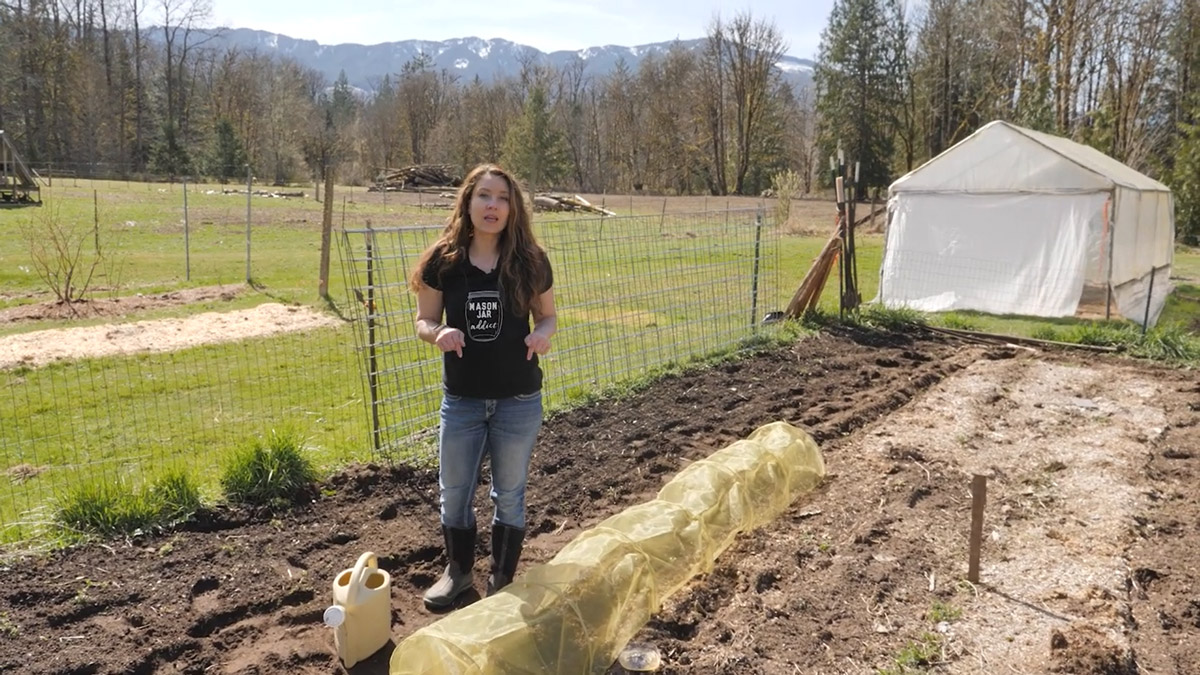
Tips for Prevention
Benjamin Franklin knew it all too well when he said, “An ounce of prevention is worth a pound of cure.” When it comes to organic pest control, prevention is the key to maintaining a healthy garden.
Use these tips to create a pest-resistant environment for your plants and reduce the risk of pest infestations from forming in the first place.
- Strong Plants – Strong plants can usually survive pest damage, whereas weak plants will succumb to it. Strong plants begin with soil health, so learn my best tips for natural fertilizers that can improve your soil, build strong soil with proper fall garden prep, and utilize sheet mulching.
- Companion Planting – Companion planting involves suppressing weeds and adding nitrogen to your soil simply by planting the right plants at the right time. Growing specific plants together can also deter pests. I discuss companion planting in an entire section of my book, The Family Garden Plan. You can also learn more about the benefits in Episode #299 of the Pioneering Today Podcast, where I interview Jessica Walliser from Savvy Gardening about the science of companion planting.
- Crop Rotation – Rotating your crops each season can help disrupt pest life cycles and prevent the buildup of pests in your garden. By changing the location of different plant families, you reduce the likelihood of pests overwintering and reinfesting your garden the following year. Learn how to practice crop rotation in your garden here.
- Practice Good Hygiene – Maintaining good garden hygiene is essential for pest prevention. Regularly remove any fallen leaves, debris, or decaying plant matter that can attract pests. Also, regularly inspect your plants for signs of pest infestation and take immediate action if needed.
- Attract Beneficial Insects – Encouraging beneficial insects in your garden can significantly aid in organic pest control. Ladybugs, lacewings, and hoverflies are natural predators of many garden pests. By providing them with habitat and food sources such as nectar-rich flowers and pollen-producing plants, you can attract these helpful insects to keep pest populations in check.
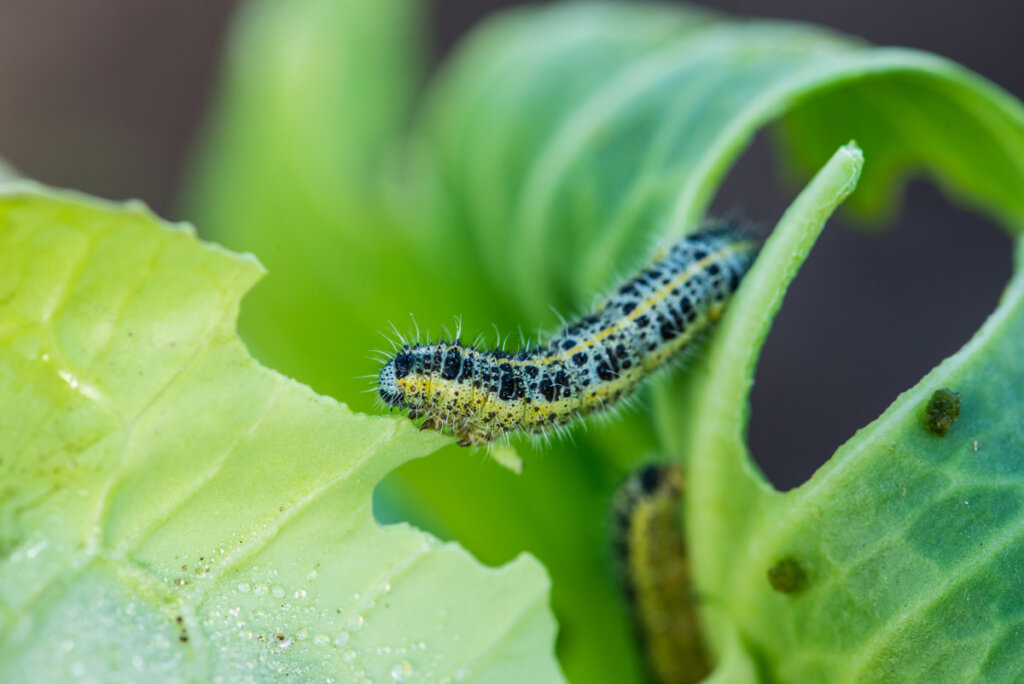
Proper Identification of Pests
When I was growing up, we didn’t have a ton of money to invest in organic pest control, so we had to be very vigilant about learning what types of pests were common in our areas and when they would most likely hit so that when we did invest in pest control, we knew exactly what we were dealing with.
To know what preventative measures you need to take when it comes to pests in your vegetable garden, you must know what type of pests are in your garden so that you can use the correct organic treatment.
It’s hard to find the culprit in action as they usually come out in the early mornings when it is still dark out. If you’re not able to catch them red-handed, there are a couple of ways you can look for clues to figure out what type of pests are in your garden.
- The first place you want to check is under the leaves for eggs. If you do find any eggs, it is important to remove them and dispose of them properly before they hatch. This will prevent more pests from entering the area. If eggs are found, many people use duct tape to remove them from the leaves, or you can clip the leaves. Looking and finding any eggs will also help you identify what is harming your plants.
- Look at and around the lower leaves, as these are the easiest for many pests to get to. (ie. slugs)
By understanding the specific pests you’re dealing with, you can take effective measures to protect your garden and prevent further damage. Here is a handy chart to help you identify common garden pests.
| Pest | Damage |
| Aphids | Stunted growth, curled and yellowed leaves, honeydew residue |
| Caterpillars | Holes in leaves and fruits, foliage damage |
| Snails and Slugs | Irregular holes in leaves, seedlings disappear overnight |
| Flea Beetles | Tiny holes in the leaves of nightshade and brassica plants. |
| Rabbits | Bark stripping, damage to tender plants |
| Deer | Browsing on foliage, broken branches |
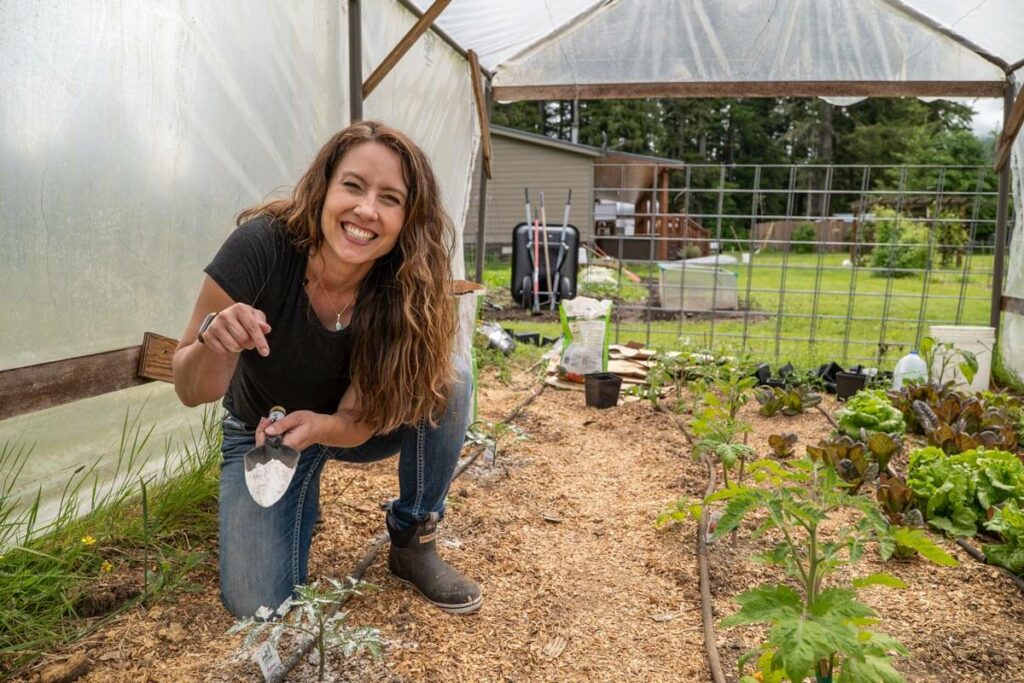
Two Ways to Treat Pests
There are two ways that people typically handle treating pests:
- Preventative – Pre-treating the plant based on past experience or what other gardeners in your area tell you.
- Application Use – Treating the plant when you find evidence of damage or disturbance.
I personally do application use as I do not put any type of pest control on any plants until I see evidence of damage. Different years bring different pests, and just because they showed up one year doesn’t mean you’ll have them the next.
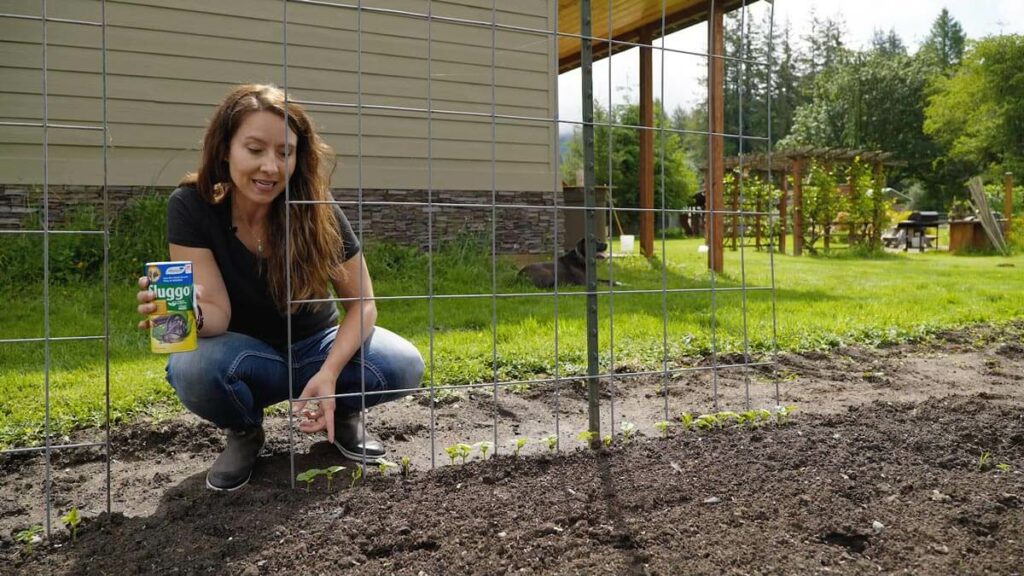
Organic Pest Control Options
Some people swear by the following treatment methods and others seem to have the opposite opinions. All you can do is test them in your own area to see what works best for you. That’s why having multiple options is great.
- Food-Grade Diatomaceous Earth – Food-grade Diatomaceous Earth works by cutting the skin or exoskeleton of any pests it comes in contact with, but it can have some effect on others (like bees), so use it wisely. It’s fairly inexpensive and a great first line of defense, in my opinion.
- Organic Neem Oil – Neem Oil applied with a garden sprayer is an all-purpose oil and one of the best natural insecticides for plants. You want to make sure that you purchase certified organic Neem oil. Many sprays claim to use Neem Oil and are “natural,” but they use other synthetic ingredients that, if you’re like me, you won’t want in your garden or on your food.
- Borax – Ants won’t consume Borax on their own, but if you mix it with a sugar or protein source (depending on what they are foraging at the time), the Borax becomes more tempting. The ants will take it back to the nest, feed it to the nest and queen, and then die.
- Sluggo – When planting strawberries, I have to grow them completely in my Greenstalk Vertical Planter or else the slugs eat them every year. But for those crops that I can’t grow in a planter, I turn to Sluggo. It’s OMR-certified iron phosphate mixed with a bait. The slugs eat the bait and then, even if they make it to your plants, they won’t eat your plants. A few days after they eat the bait, they will die.
- Beer Traps – Though we’re not beer drinkers in my home, you will see beer in my refrigerator during the summer months to use in the garden. For whatever reason, slugs are drawn to the beer, and when placed in a shallow pan, the slugs crawl into the beer and drown.
- Ducks – Believe it or not, having ducks around can be great pest control against slugs and snails. I actually ordered ducks from Murry McMurray Hatchery specifically for slug control because our chickens don’t like eating slugs or snails. I’ll also be raising the ducks for their eggs to use in my baking!
- Copper Tape – Copper tape comes in a roll, and a strip can be applied around pots or raised beds. It forms a protective barrier from slugs by providing a small electric shock when they come into contact with it.
- Barriers – Another natural line of defense against pests is to use some kind of barrier to keep the pests from getting to your plants. I like to use this to prevent cabbage moths from eating my cabbage. I also like to use netting specifically made for fruit trees to protect against deer from eating all the young growth.
- Other Traps – There are many other kinds of traps that can be used for pests, from wasps, flies, and mosquitos to traps that will catch apple maggots in fruit trees. Using traps set out at the right time of year can help prevent so much damage from pests.
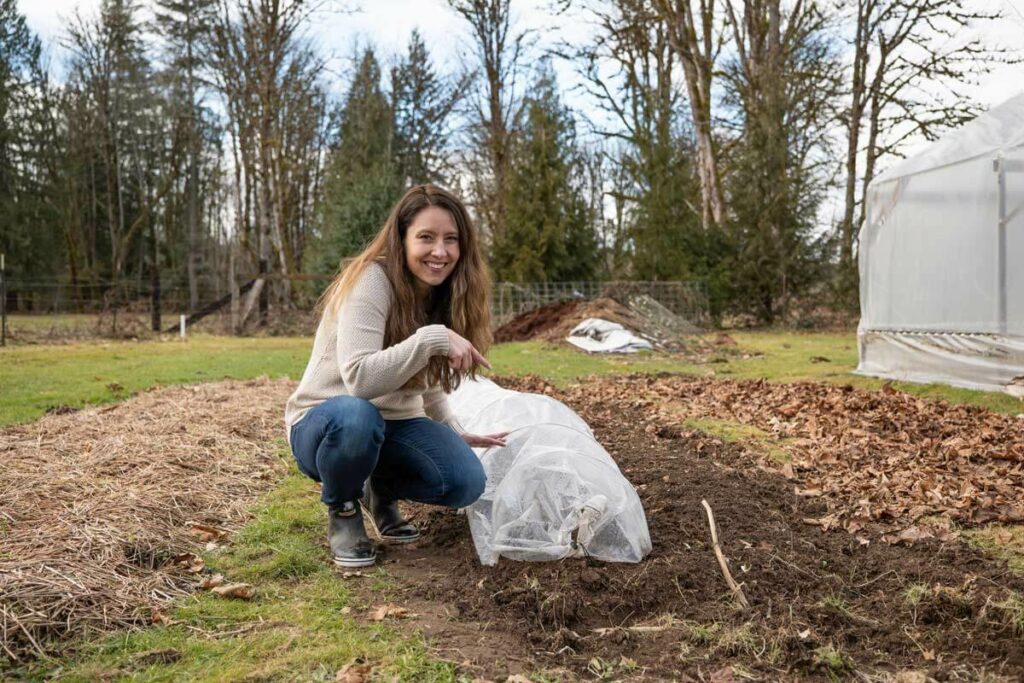
How to Repel Cabbage Moths Naturally
First and foremost, it is important to understand how to identify the different species of cabbage moth worms, which is why I have a separate post specifically on cabbage moth control. Make sure you read through that for an in-depth method of repelling cabbage moths.
As a general tip for repelling cabbage moths, I highly recommend companion planting orange nasturtium. In the research that I did when writing The Family Garden Plan, I found that all of the scientific studies and research were specifically on orange nasturtium.
I plant an orange nasturtium between about every two plants. I plant a nasturtium, two Brussels sprouts, and a nasturtium and repeat. I know some people have mixed results, but it’s been amazing for me. I say give it a try. Not only are the flowers beautiful, but the flowers and leaves are edible, too!
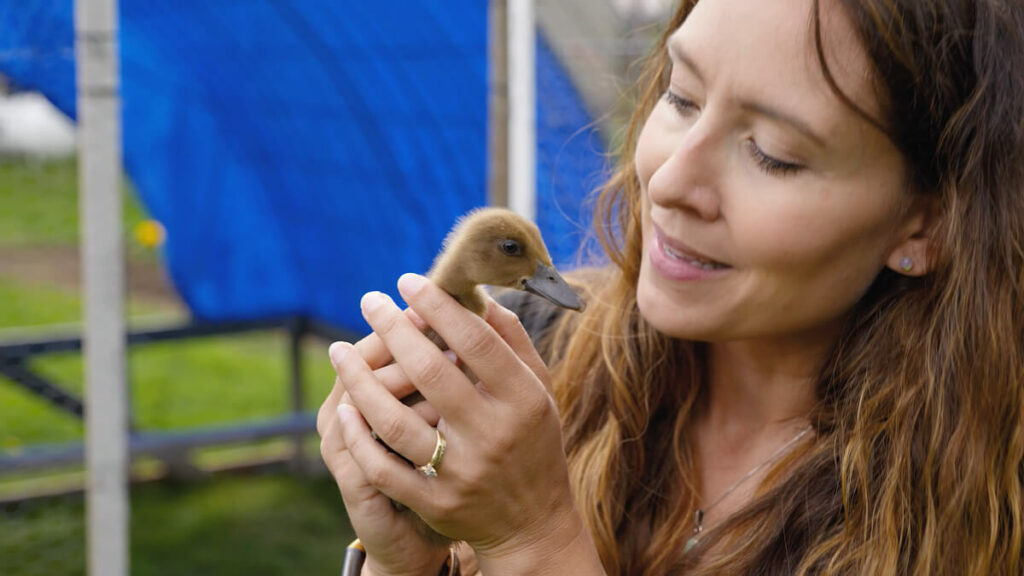
How to Get Rid of Slugs Naturally
Slugs and snails can strip a plant almost overnight. I have no problem killing slugs, but I only kill the ones that are in my garden. I don’t relocate them because they will breed.
Broccoli, cauliflower, and lettuce are susceptible to slugs. Although they will occasionally attack other plants, they seem to be the hardest hit in my garden.
Contrary to popular advice, eggshells do not deter slugs. Supposedly, the crushed eggshells will cut the slug or snail if they crawl on them, but this is false. The edges aren’t sharp enough, and this has never worked for me.
Also, salt will kill slugs, but I’m not going to be sprinkling salt all over my soil or on my growing vegetable plants. Salt will ruin your soil, causing a salinity build-up, so if you use it, only sprinkle directly on the slugs.
Personally, I’d rather save my salt and have found other methods to be more effective.
- Hand-picking – One of the options that’s a surefire method is one I do early in the morning. You can wear gloves, but to be honest, I don’t. I just pick the slugs off and put them in a cup or bucket of soapy water. You must use soap because slugs won’t drown in just water. You have to have at least a couple of squirts of dish soap in there to kill them otherwise, they just crawl back out. Trust me on this one.
- Sluggo – I use this method when my plants are very immature because if a slug eats the top two leaves of a brand-new plant, that plant will no longer grow. Once the plants grow up and become more established, I’ll use beer traps for the slugs.
- Beer – Cheap beer works just as well as expensive beer. You’ll need a shallow dish, like a Frisbee upside down. Pour the beer into the dish. The slugs will crawl in there and die. They’re attracted to the beer, and it kills them. It works very well. The only thing is that you have to replace it with fresh beer and empty the dishes out every day or two.
- Diatomaceous Earth (DE) – When we’re not getting rain I will use Organic Food Grade Diatomaceous Earth Powder. Unlike eggshells, food-grade diatomaceous earth does work, provided it doesn’t get wet. I can’t use it when it’s raining or when we have heavy dew. Sprinkle it on top of the heads of cauliflower and broccoli and around the base of the plant.
- Copper Tape – This will work, but it’s going to be costly if you have very big beds or a garden.
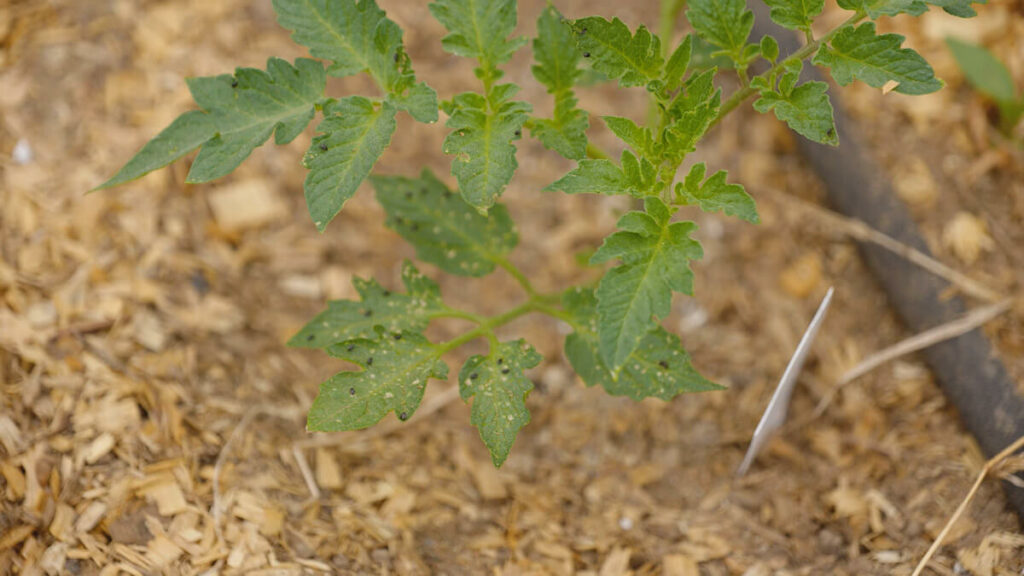
How to Get Rid of Flea Beetles Naturally
Flea beetles are attracted to the brassica family, but especially to nightshades such as tomatoes. If they attack young plants, they will likely kill them, but older, more established plants can still survive if treated promptly.
- Tilling – Whether or not you are for tilling in the garden, it can have its benefits, and one of those is that it interrupts the life cycle of flea beetles and root nematodes. The way these pests lay their eggs, tilling the ground can eliminate or drastically reduce the number of eggs that survive from year to year.
- Diatomaceous Earth (DE) – We try to till as little as possible and do more of the no-till garden method, so I opt to sprinkle the infestation with Organic Food Grade Diatomaceous Earth Powder. Pro-Tip: For better results, apply the powder to the soil around the plant, its base, and its leaves.
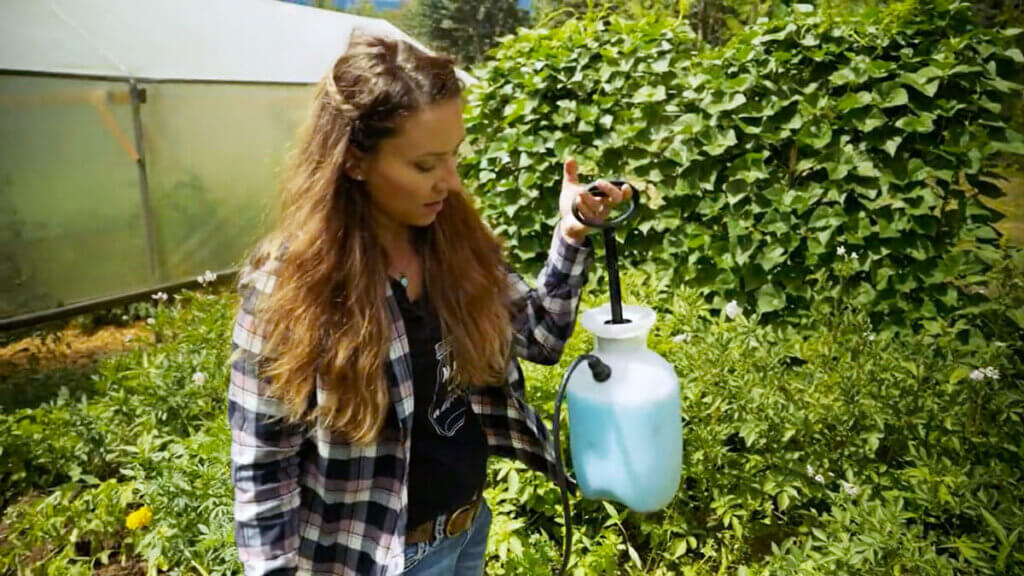
How to Get Rid of Aphids on Plants Naturally
A lot of people ask about aphids. I like to use companion planting to draw in good predatory insects and to repel insects that would normally be destructive to my crops. Aphids don’t usually completely kill a plant, though. If it’s a small plant or start, it can kill it. Otherwise, they just damage the plants by stressing them out.
- Natural Predator – Ladybugs will eat aphids but you have to have an environment for the ladybugs. You can purchase them online or from garden center stores, but if you let them loose in a garden that doesn’t have plants that ladybugs are attracted to, they’re not going to eat your aphids. Ladybugs love dill and carrot tops. I always find ladybugs in my dill and carrots so plant plenty of them.
- Natural Spray – You can try hosing them off with a really strong spray from the hose or mix up a drop of soap with water in a spray bottle. Another option is an organic homemade pest spray. I have a recipe in my book, The Family Garden Plan, where you basically infuse water with raw garlic, onions, and peppers. Things that they don’t like. Then, you strain it out and spray the plant with that. It’s smelly and stinky, and it repels them.
- Diatomaceous Earth (DE) – If it’s dry, you could sprinkle a little bit of food-grade DE, but that can be harder to do on frilly types of plants.
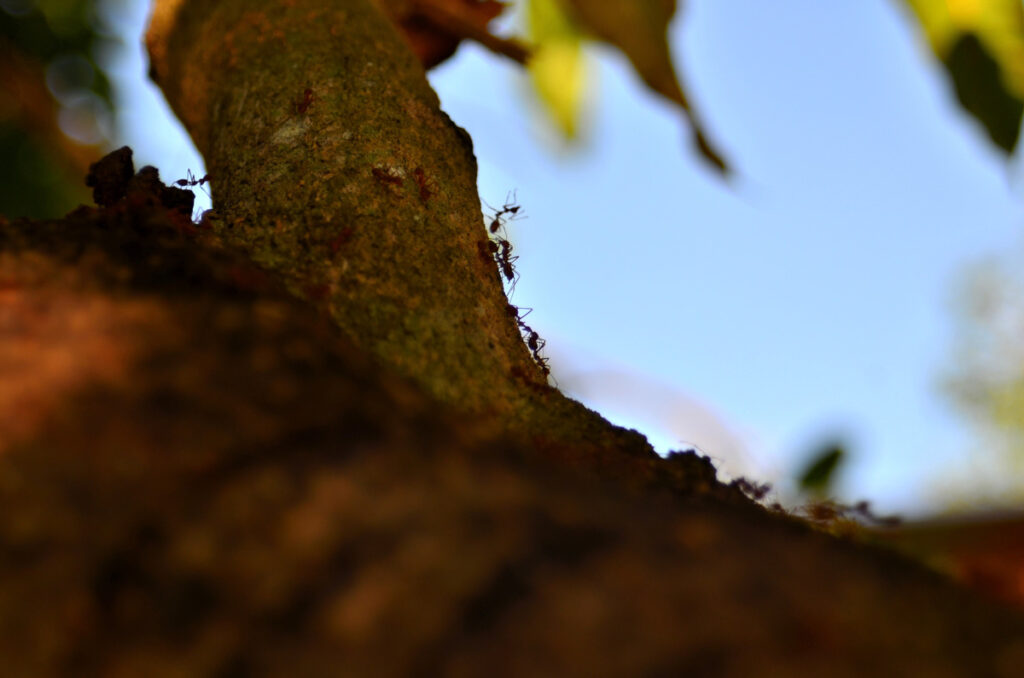
How to Kill Ants in Garden Naturally
If you’ve noticed ants invading your garden, it’s important to take immediate action. While ants won’t bother the stems and leaves of the plants, they tunnel underground, creating nests that will cause damage to your plants’ root systems.
- Boiling Water – Boil a pot of water and carefully pour it over the ant hills or along their trails. The hot water will kill the ants and destroy their nests, effectively eliminating the problem. Just be cautious when handling boiling water to avoid any accidents.
- Natural Repellents – You can try using smells that ants dislike to deter them. Spreading used coffee grounds around your garden or diluting a few drops of peppermint oil in water and spraying it on ant-infested areas might be worth a try. I haven’t used these methods and can’t vouch for them, though.
- Borax Paste – This method is my top pick. I tried it a few years back and haven’t had a problem since. Make a paste of borax, water, and a little bit of sugar. Put it in a shallow dish and place it where the ants are located. The ants will take it back to the nest, feed it to the nest and queen, and then they’ll die. I had to put out fresh every three days and repeat until I did not see any more ants. Sometimes if you do it once, you’ll see a decline, but they won’t be all gone. Just keep repeating it over a couple of weeks. When using this method, take special care to make sure it’s not where your pets or livestock can get it.
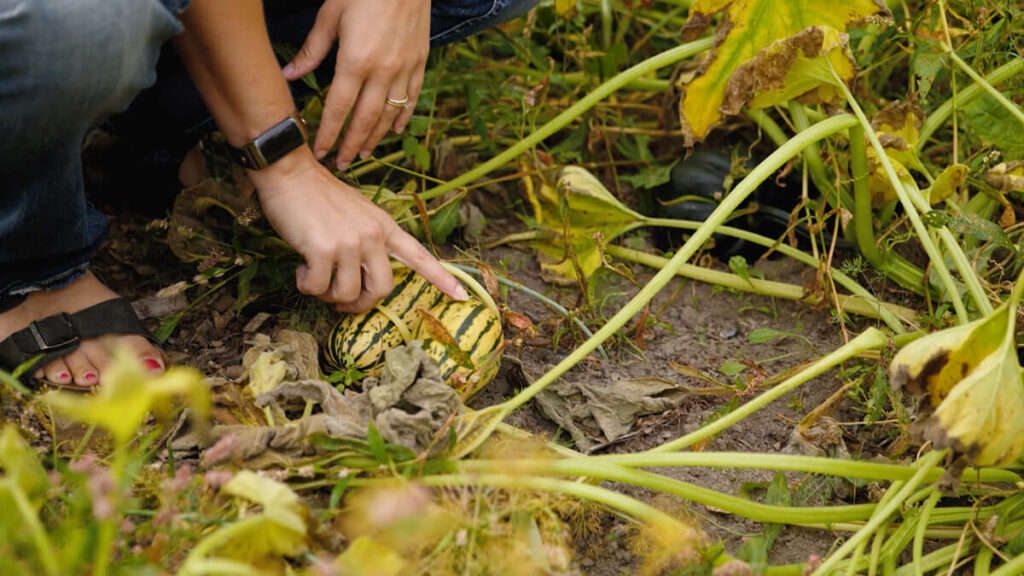
How to Get Rid of Squash Vine Borers Naturally
Squash vine borers do exactly what their name suggests. The adult moth lays its eggs at the base of a squash vine. Once the eggs hatch, the larvae burrow inside the vine and consume the plant from the inside out.
Fortunately, there are natural solutions available to effectively manage these pests without resorting to chemical pesticides.
- Neem Oil — Neem oil specifically works on vine borers and, as a bonus, some fungal issues. It doesn’t kill every fungal disease, but it works on some fungi and also on some bacteria.
- Diatomaceous Earth (DE) – DE and Neem oil are my go-tos that I try first whenever I have to do some type of organic treatment for pests.
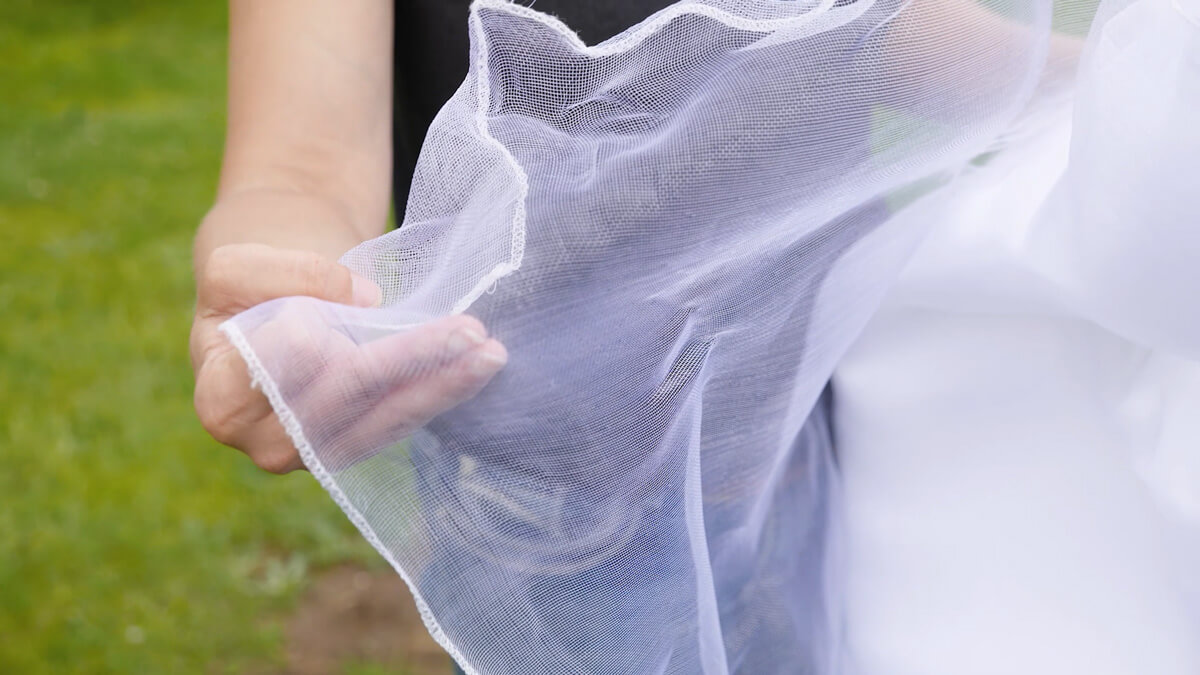
How to Naturally Keep Birds Out of the Garden
Another pest we have is birds, especially in fruit trees and berries. I don’t know about your birds, especially crows, but here, they like to bother my corn and beans. I don’t know if it’s the way they look when they first pop up, but the birds like to go through and pull them all out.
They don’t even eat them! They just pull all the baby corn up. Drives me crazy!
- String – Put in stakes at the end of each row and then take the string and string it across the top, about one to two inches, off the little baby plants that are sprouting. Now, even though the birds could land and get beneath that string very easily and pull on those sprouts, they don’t. Once the corn or bean starts to get about four to six inches tall, the birds don’t seem to bother it. By that time, you can remove the string. This works incredibly well, and I do it every year.
- Netting – The birds also like to get into my blueberries. They don’t bother the raspberries or blackberries, interestingly, but they really get into my blueberries. Place netting over the plants when the berries are green and haven’t started ripening yet. I drape it over and just use a little bit of twine to tighten it at the bottom. You can also use tulle.
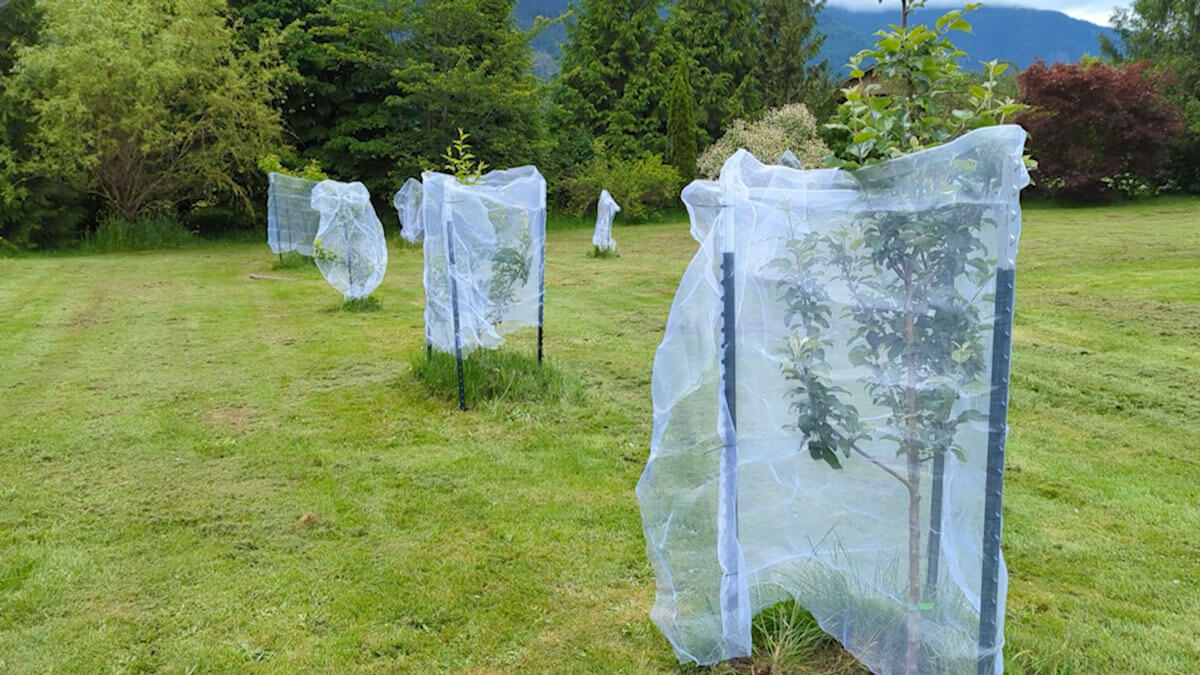
How to Naturally Keep Deer Out of the Garden
Deer can cause considerable damage to a vegetable garden, and love the tender new leaves and branches of young fruit trees.
- Fencing – The typical recommendation for a deer fence around a garden is 5-6 feet high. Ours is only four feet high, and although the deer could jump it, they don’t.
- Netting – We have tried urine and human hair, but barrier methods seem to work the best. I take netting and wrap it around the tree so that the deer can’t get to the leaves. That works best, especially on young trees.

Continued Application
One of the biggest mistakes when treating pests is to treat it once and call it good. Just one application isn’t going to get rid of the pests. Depending on the pest (going back to identification), you usually need to apply on a weekly or bi-weekly basis throughout the season.
This means being diligent and applying the spray or powder and also manually removing any eggs or live creatures you see. Truthfully, the only way I can keep 100% of the slugs down is to go out and manually pick them off and dispose of them.
If you want to learn more about organic gardening, sign up for my Organic Gardening Workshop! I’ll give you tons of tips, and you do not want to miss it!
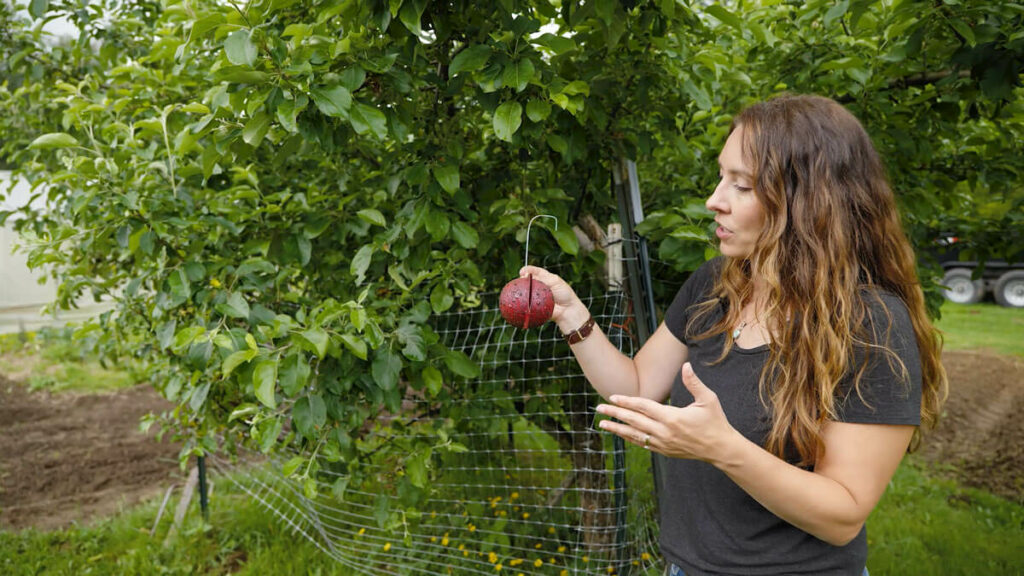
Resources
Episode #203
- Organic Gardening Workshop
- The Family Garden Plan
- Episode #200 How to Improve the Health of Your Soil
- Episode #201 What Is Organic Gardening
Episode #266
- Neem Oil – This is the brand I use as it doesn’t have any sneaky ingredients, it’s 100% pure cold-pressed neem oil
- Organic Food Grade Diatomaceous Earth Powder
- How to Treat Fruit Trees Organically
- Verse of the Week – Psalm 46:1
